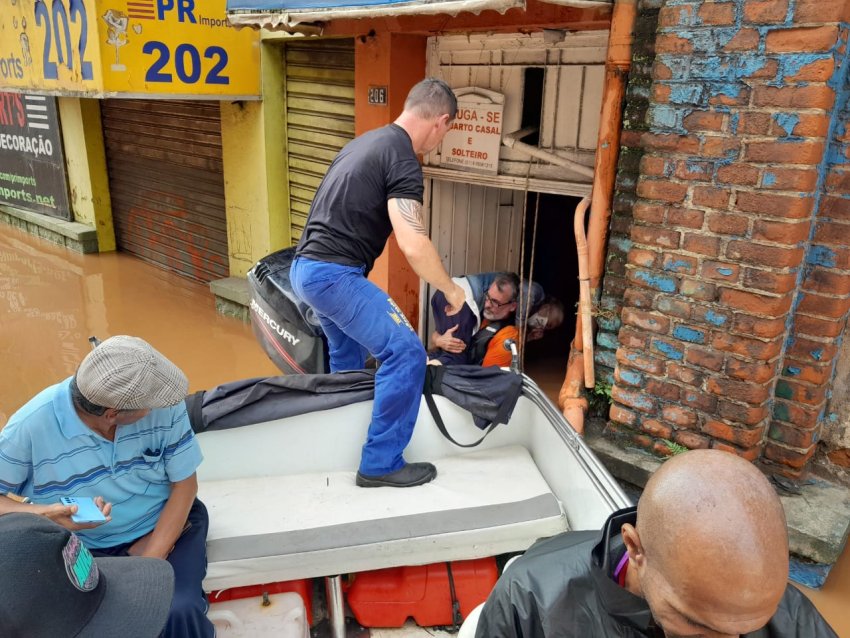
Storms that began on April 29 have triggered unprecedented flooding in Brazil’s southernmost state of Rio Grande do Sul.
With rain is forecast to continue, the climate disaster has already affected more than two-thirds of the state’s nearly 500 cities, leaving about 150,000 people displaced, 85 dead and more than 130 missing as of May 6.
Below, Brazilian socialists Israel Dutra and Roberto Robaina outline a socialist response to this climate catastrophe.
Dutra is a national leader of the Socialist Left Movement (MES) tendency within Brazil’s Socialism and Liberty Party (PSOL). Robaina is a PSOL city councillor in Rio Grande do Sul’s capital, Porto Alegre.
*****
Rio Grande do Sul is experiencing the worst environmental catastrophe in its history. Dozens have been killed and hundreds of thousands have been displaced, with the poorest and most vulnerable neighbourhoods under water.
In the face of this, we need to strengthen solidarity and combine it with a necessary societal mobilisation around the “new normal” resulting from global warming and environmental devastation. The latter requires us to confront climate denialism and neoliberal austerity, which seeks to cut social investment designated towards defending the most vulnerable.
The current development model, with its basis in greenhouse gas emissions, is protected and promoted by agribusiness and other predatory extractivist industries.
The destruction of ecosystems, rivers and forests that accompanies these industries leads to environmental degradation.
This is a concrete problem.
Ideologically, the far right’s position is one of denialism, but it has very concrete political implications. Deregulation of environmental legislation and lobbying by the rural caucus [in Congress] has only aggravated environmental disasters, both present and future.
We need to act now to save lives and ensure that the people are not left to foot the bill.
Urgent measures are needed. These include concentrating efforts in active solidarity, such as through trade unions, civil society organisations and social movements, collecting more donations and supplies, food and medicines.
Moreover, concrete governmental actions are needed, from immediately guaranteeing basic conditions for those affected by the floods, through to suspending electricity and water bills for those left homeless, an emergency settlement and housing plan, funds for rebuilding logistics and infrastructure and an effective disaster prevention plan.
It should be the rich, not the poor, who are made to foot the bill for this tragedy. This could be done by the government reversing the fiscal adjustment and spending ceiling contained in its fiscal framework.
Taxing large fortunes would also greatly help.
We also need to consider two interconnected tasks.
The first task is to develop a new model that, unfortunately but necessarily, corresponds to the “new normal”, with specific political, social and economic proposals.
For example, our parliamentarians have already proposed measures such as the suspension of payment of state debt, so that these resources can be earmarked for a reconstruction plan that prioritises small businesses and family farming, broad urban reform and the living conditions of the majority.
The second task is to directly confront the denialists and neoliberals and raise awareness of the urgent need to respond to the environmental crisis.
This can only be achieved by uniting the working class and youth in order to achieve a societal majority behind a radical project capable of challenging neoliberal capitalism — which is ultimately responsible for the catastrophe taking place.
[Translated and abridged by Federico Fuentes from Revista Movimento.]